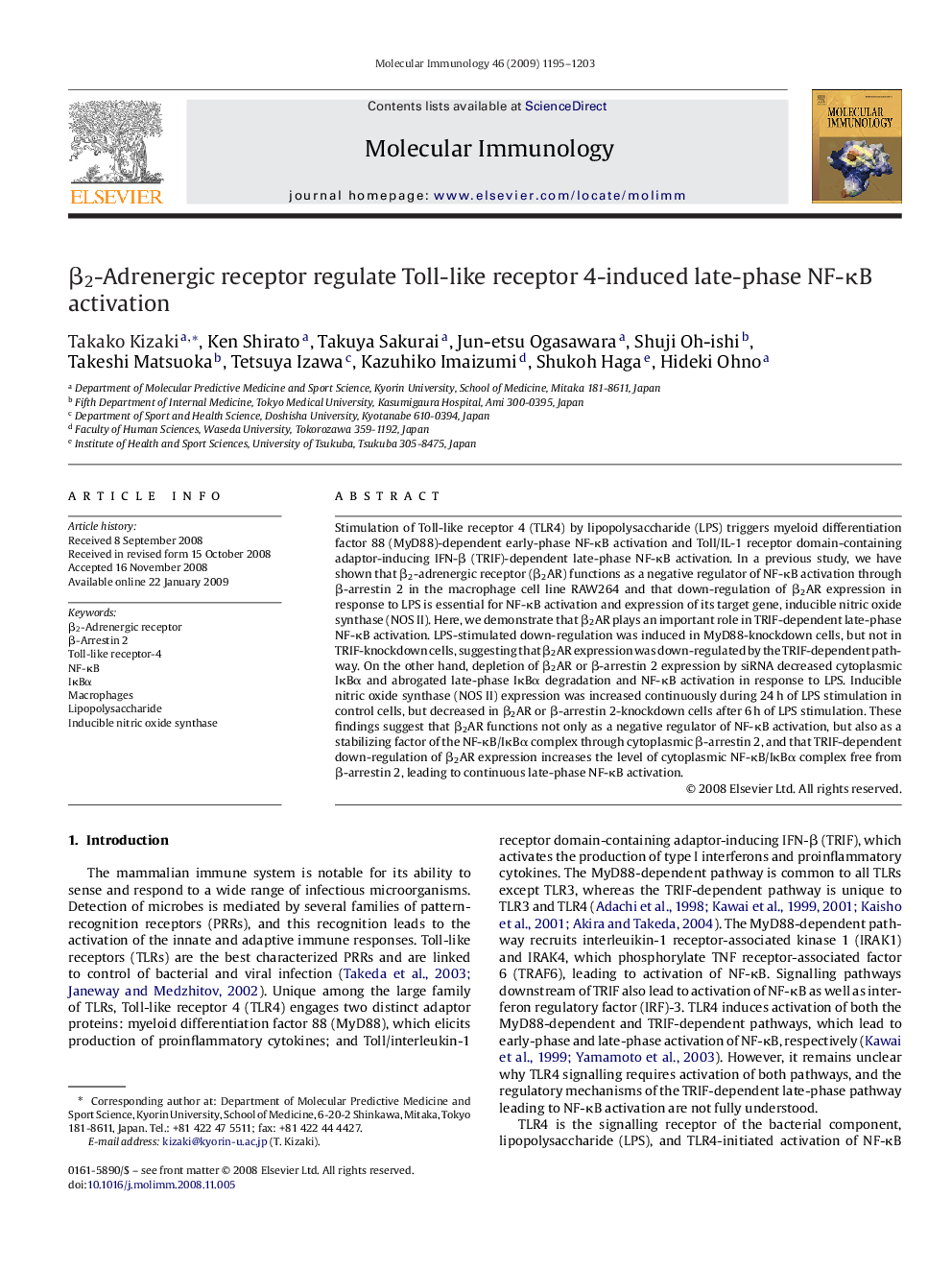| Article ID | Journal | Published Year | Pages | File Type |
|---|---|---|---|---|
| 5918281 | Molecular Immunology | 2009 | 9 Pages |
Abstract
Stimulation of Toll-like receptor 4 (TLR4) by lipopolysaccharide (LPS) triggers myeloid differentiation factor 88 (MyD88)-dependent early-phase NF-κB activation and Toll/IL-1 receptor domain-containing adaptor-inducing IFN-β (TRIF)-dependent late-phase NF-κB activation. In a previous study, we have shown that β2-adrenergic receptor (β2AR) functions as a negative regulator of NF-κB activation through β-arrestin 2 in the macrophage cell line RAW264 and that down-regulation of β2AR expression in response to LPS is essential for NF-κB activation and expression of its target gene, inducible nitric oxide synthase (NOS II). Here, we demonstrate that β2AR plays an important role in TRIF-dependent late-phase NF-κB activation. LPS-stimulated down-regulation was induced in MyD88-knockdown cells, but not in TRIF-knockdown cells, suggesting that β2AR expression was down-regulated by the TRIF-dependent pathway. On the other hand, depletion of β2AR or β-arrestin 2 expression by siRNA decreased cytoplasmic IκBα and abrogated late-phase IκBα degradation and NF-κB activation in response to LPS. Inducible nitric oxide synthase (NOS II) expression was increased continuously during 24 h of LPS stimulation in control cells, but decreased in β2AR or β-arrestin 2-knockdown cells after 6 h of LPS stimulation. These findings suggest that β2AR functions not only as a negative regulator of NF-κB activation, but also as a stabilizing factor of the NF-κB/IκBα complex through cytoplasmic β-arrestin 2, and that TRIF-dependent down-regulation of β2AR expression increases the level of cytoplasmic NF-κB/IκBα complex free from β-arrestin 2, leading to continuous late-phase NF-κB activation.
Keywords
Related Topics
Life Sciences
Biochemistry, Genetics and Molecular Biology
Molecular Biology
Authors
Takako Kizaki, Ken Shirato, Takuya Sakurai, Jun-etsu Ogasawara, Shuji Oh-ishi, Takeshi Matsuoka, Tetsuya Izawa, Kazuhiko Imaizumi, Shukoh Haga, Hideki Ohno,
